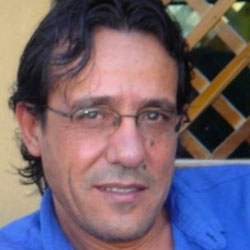RVWS Celebrates longer spring days and 11 years of bringing emerging and established writers into your hearts.
Six amazing authors will be reading with RVWD on this night: Dallas Hunt, df.parizeau, Genki Ferguson, Aimee Wall, Samantha Garner, and Stephen Collis.
Hosted by the semi-defatigible Dina Del Bucchia and Sean Cranbury.
Learn more here.
Help Alaska Quarterly Review (AQR) reach new literary milestones. Please mark your calendars for Pièces de Résistance, an extraordinary benefit series celebrating AQR’s 40th anniversary. Join the publication for 21 free, live online readings and conversations, featuring 58 exceptional new, emerging, and established poets and writers who have appeared in AQR. Pièces de Résistance runs from October 4, 2020 to May 2, 2021 hosted by the Anchorage Museum and moderated by author Heather Lende and AQR Co-Founder and Editor Ronald Spatz.
While all of the Pièces de Résistance events are free, consider making a tax-exempt donation to support AQR through our 501c3 affiliate, the Center for the Narrative & Lyric Arts.
This event features readings by Lee Conell, Debbie Urbanski and Jerome Charyn.
Learn more here.
Victoria College presents the virtual panel discussion, “First Next Steps: Getting Started as a Writer and Editor” on writing careers. How do you get started as a writer or journalist? What do editors look for when reviewing pitches and submissions? How might you go from being a “student who writes” to a published author? This panel, consisting of writers, editors, and investigative journalists at the forefront of the industry, will share stories and give tips and techniques for students who want to take the next steps in their writing careers.
Learn more here.
Poetry London is delighted to announce the readers for its upcoming 17th season!
Their three fall events will be video readings launched on their YouTube page; they hope that public health conditions will allow them to return to live events in 2021.
This event features poets Melanie Janisse-Barlow and Cassidy McFadzean.
Learn more here.
The Saskatchewan Writers’ Guild celebrates World Poetry Day on March 21, 2021, with a free virtual event Prairies to the Pacific: Poets Laureate of Western Canada. This vibrant reading will include five Poets Laureate of Western Canada: Bruce Rice of Saskatchewan, Duncan Mercredi of Winnipeg, Natalie Meisner of Calgary, Nisha Patel of Edmonton, and John Barton of Victoria. Host Micheline Maylor, past poet laureate of Calgary, will lead everyone through poetry readings and discussion of questions such as: How do you know you’re west of Ontario? And why does the landscape west contain so much to write about?
Learn more here.
In celebrating World Poetry Day, March 21, UNESCO recognizes the unique ability of poetry to capture the creative spirit of the human mind. A decision to proclaim 21 March as World Poetry Day was adopted during UNESCO’s 30th session held in Paris in 1999. One of the main objectives of the Day is to support linguistic diversity through poetic expression and to offer endangered languages the opportunity to be heard within their communities.
Learn more here.
South Bank Poetry Editor Katherine Lockton runs regular Saturday poetry writing classes online. Join South Bank Poetry for their online programme of poetry writing classes, which provide a fun, personal and accessible approach to learning how to write poetry, in a friendly environment that puts the student’s learning experience first.
This class will take a virtual trip to a museum, and encourages participants to be inspired to create poems by what they see. Poetry techniques taught focus on studying how to stay inspired.
Learn more here.
This virtual poetry reading will feature Medrie Purdham and Stuart Ross.
A regular feature of these poetry readings is the Open Mic segment, which is an enduring favourite with both the readers and the audience. To sign up for the Open Mic, please register first for the event and then contact Poets Corner at socialmedia@poetscorner.ca. First time readers adored and welcome!
Learn more here.







